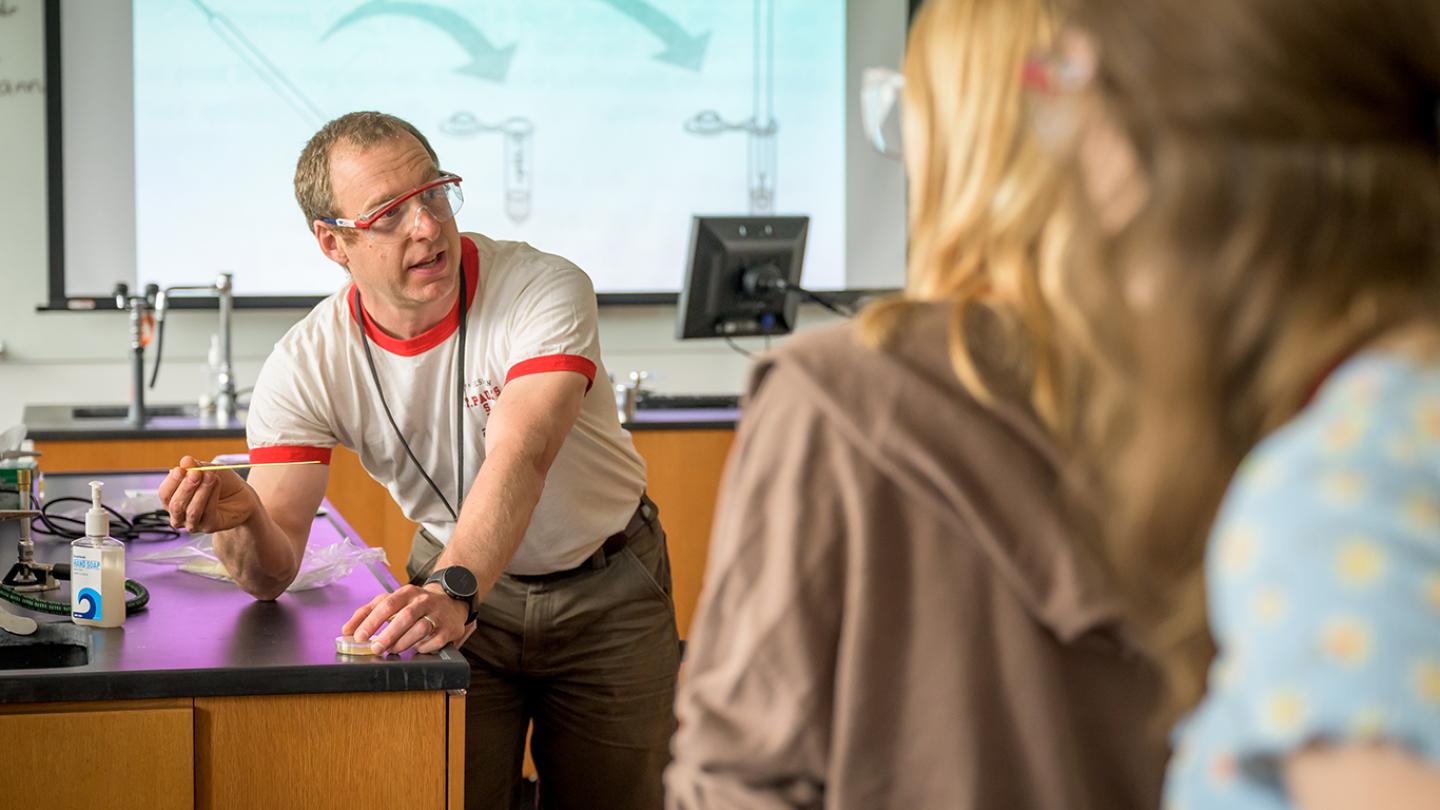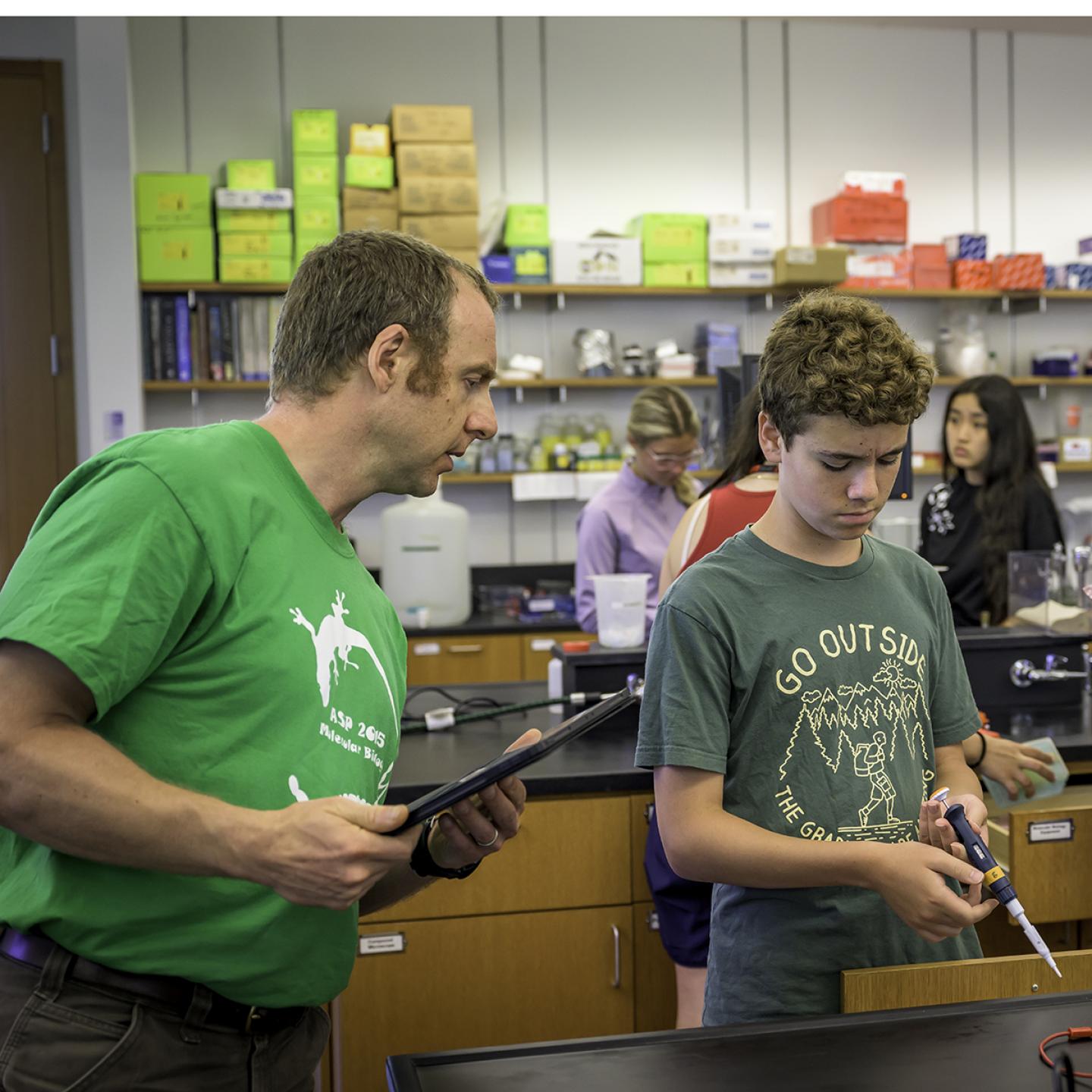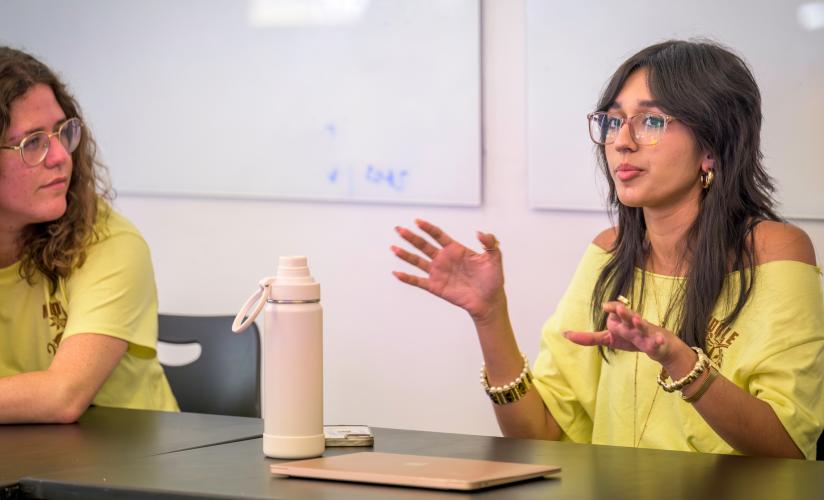

For years, Scott Betournay ASP’96 has contributed his skills as a teacher at ASP and as a valued member of the SPS Science Department.
BY JANA F. BROWN
A phone call in the spring of 2007 is what brought Scott Betournay ASP ’96 back to New Hampshire. After graduating from Bates College in 2001 with a degree in biology, the Meredith native had moved south to pursue a master’s in ecology from East Carolina University. At the time, he was in the last semester of his program, and he was looking to return to the Granite State.
On the line was Tom Bazos, then director of the Advanced Studies Program at St. Paul’s School. Bazos remembered Betournay from five years earlier when he served as an intern in the Molecular Biology class.
“Tom asked me if I might consider applying to teach Molecular Biology that summer,” Betournay recalls. “I did, and they offered me the job.”
Accepting that position turned out to be the start of a full-circle experience for Betournay with ASP. Other than 2020, when COVID-19 forced a scaled-back summer program that did not include lab sciences, Betournay has taught Molecular Biology to talented rising juniors and seniors from New Hampshire schools at the ASP every summer. His connection to the SPS summer program also led Betournay to his full-time work at SPS.
After his first ASP summer and a year of teaching biology at Concord High School, Betournay joined the SPS community ahead of the 2008-09 academic year. Hired as a science lab technician, his responsibilities include supporting SPS science teachers and classrooms with everything from preparing labs and activities to managing the behind-the-scenes operations of the department. That means monitoring the supply of chemicals and equipment for all scientific disciplines and ensuring that work is conducted safely.
“I make sure the resources are in place to be safe in all we do here,” Betournay says.
In his 16-year-tenure, Betournay has, at times, taught Molecular Biology and an elective called Conservation Biology during the regular academic session. The benefits of his full-time work in the Lindsay Center for Mathematics and Science include the extra preparation it allows him ahead of his summers at ASP. In turn, he credits his experience as a summer faculty member for inspiring his career path and his time as an ASP student with helping to shape him as a scholar and thinker.

For anyone in a New Hampshire high school, I really can’t encourage them enough to apply to ASP. I think they’ll find the experience to be far more rewarding and inspiring than they might imagine.”
A high-achieving student at Inter-Lakes High School in Meredith with an eye toward a STEM-based career, Betournay decided to take a chance when he applied to ASP by signing up for a class that was literally Greek to him: The Tragedy of Ancient Greece. Those five weeks in 1996 remain the only time he studied the classics.
“It was a lot of reading, a lot of study hours, and really stimulating, meaningful conversations around the Harkness table — and I loved it,” Betournay says. “Coming from a small school, it was a bit of a wake-up call to be around so many smart, motivated students. The level of rigor and academic discourse were inspiring and challenging, and it pushed me to be able to keep pace with everyone else.”
Betournay says the preparation he gained from his ASP experience carried over into his undergraduate experience at Bates, where he learned to prioritize time management and self-care. Those are skills that now inform his work at St. Paul’s, where, in addition to his duties in the Science Department, he serves as an adviser in Kittredge I, as adviser to the Outing Club and as a coach of the Nordic ski team. Aside from his day-to-day responsibilities in the Lindsay Center, Betournay also is the Science Department’s representative to the School’s Safety Committee and is often a key collaborator with faculty in implementing new and innovative ideas into their classrooms.
“One example is a forensic DNA analysis we do in Fifth Form Biology,” Betournay explains. “We create a ‘crime scene’ or a mystery scenario that the students need to solve by studying the individual [simulated human] DNA fingerprint of multiple individuals and seeing if, among several suspects, there’s someone whose DNA matches. It draws upon skills and labs that I might teach in the summer program, so it’s good preparation for ASP, too.”
ASP Director Michelle Taffe describes Betournay as the epitome of an ASP alum. “He demonstrates a keen intellect and a genuine love of learning,” she says. “An engaged and supportive community member, his dedication is unparalleled. We in the ASP cherish our longstanding partnership with Scott.”
While science has intrigued Betournay since childhood and he expected to pursue a career in the field, he is not sure he would have ended up in his long and fruitful career at St. Paul’s had he not taken the leap to apply to ASP as a high school junior. He continues to return to ASP each summer because of the people, and shares that he is inspired by the faculty and interns who do their best to create a memorable — often transformational — experience for the equally impressive students. “For anyone in a New Hampshire high school, I really can’t encourage them enough to apply to ASP,” he says. “I think they’ll find the experience to be far more rewarding and inspiring than they might imagine.”
Betournay says he also appreciates the commitment that SPS demonstrates to the state of New Hampshire and its public high schools through the ASP. “The fact that SPS is focused more on offering this experience than maximizing revenue for the use of its grounds and facilities during the summer means the ASP is affordable for more families than it would be otherwise,” he explains. “That, as well as the difference ASP donor support makes to meeting the need for financial aid, really illustrates how much this community believes in the mission of the ASP.”



